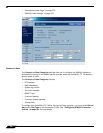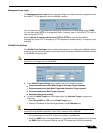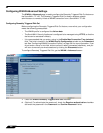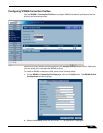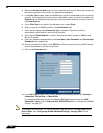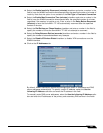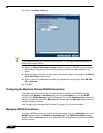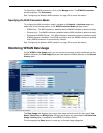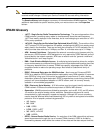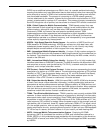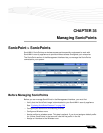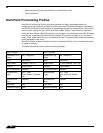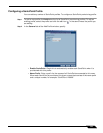
WWAN
386
SonicOS Enhanced 4.0 Administrator Guide
Note The Data Usage table is only estimate of the current usage and should not be used to
calculate actual charges. Contact your Service Provider for accurate billing information.
The Session History table displays a summary of information about WWAN sessions. To view
additional details about a specific session, place your mouse cursor over the Properties
balloon.
WWAN Glossary
• 1xRTT - Single Carrier Radio Transmission Technology - The second generation of the
CDMA protocol, permitting many radios to simultaneously share the same frequency.
1xRTT was mostly deployed in the Americas, but is now undergoing an evolution to 1xEV-
DO by many operators.
• 1xEV-DO - Single Carrier Evolution Data Optimized (Also EV-DO) - The evolution of the
1xRTT protocol, EV-DO provides true 3G speeds, competing with UMTS, but remains most
widely used in the Americas. There are currently two revisions of EV-DO available: Rev. 0,
which provides data rates up to 2.4 Mbps, and Rev. A, with data rates up to 3.1 Mbps.
• APN - Access Point Name - Designated the external connection point (access point) for
devices on a GPRS network. APN designation is only required by GPRS devices, and will
be provided by the network operator. APN uses a notation such as "general.t-mobile.uk",
"btmobile.bt.com" and "wap.cingular".
• DMA - Code Division Multiple Access - A multiplexing technique that allows for multiple
concurrent accesses to a channel through the use of unique data encoding rather than time
or frequency based division of access. CDMA has capacity advantages over GSM, but
congestion tends to reduce its operating range. Also refers to Qualcomm's family of
protocols.
• EDGE - Enhanced Data rates for GSM Evolution - Also known an Enhanced GRPS.
EDGE is an adaptive GPRS implementation employed by many GSM networks. It improves
upon GPRS by using up to 8 time-slots (as opposed to a maximum of 5) with a denser
modulation scheme for higher data rates. EDGE is regarded as a cost-saving interim GSM
protocol until more widespread adoption of UMTS is seen, and it is currently broadly
available in all worldwide geographies.
• ESN - Electronic Serial Number - A 32 bit number used to uniquely identify stations on a
CDMA network. ESNs are the effective equivalent of GSM's IMEI scheme.
• Generation - WWAN protocols are divided by generation, such as 2G, 2.5G, and 3G, where
1G would be the original analog cellular networks. Generations advanced is usually
characterized by improvements in speed and capacity. Although 3G is most commonly
used to describe Wireless Wide Area Networking, 3G only refers to a single set of available
protocols. A list of popular protocols by generation:
1G - Analog
2G - GSM
2.5G - GPRS
2.75G - EDGE, 1xRTT
3G - UMTS, 1xEV-DO
3.5G - HSDPA
• GPRS - General Packet Radio Service - An evolution of the GSM network that achieves
speed improvements through the use of unused TDMA channels. GPRS is divided by
incrementing classes, which define the number of time-slots and the data-rate per time-slot.



